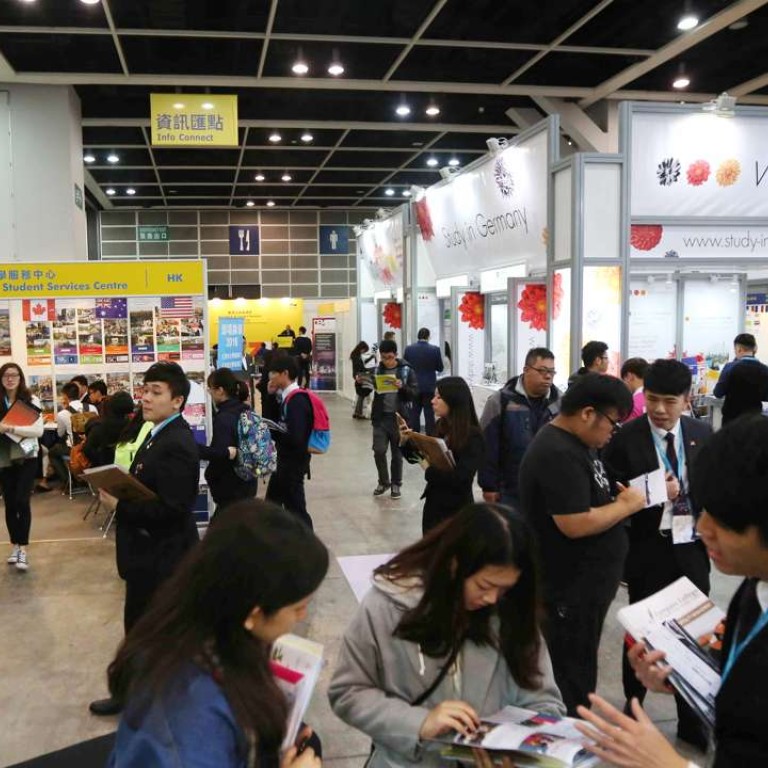
Out of pocket: number of Hongkongers in higher education doubles in a decade, but wages stay flat
Government urged to do more to tackle youth poverty, such as expanding vocational education and raising the minimum wage
The number of Hongkongers in higher education nearly doubled in one decade but their wages stagnated, according to a study which warned young people faced bleak prospects unless the government took action.
In its latest research on youth poverty, the Hong Kong Council of Social Service compared statistics from government censuses and found that the number of people aged 15 and over attaining post-secondary education almost doubled from 752,027 in 2001 to 1.48 million in 2011.
But in the same period the overall wages of people with higher education showed no increase – with the percentage of those earning less than HK$20,000 a month growing from 42 per cent in 2001 to 45 per cent in 2011 – while the consumer price index grew by over 11 per cent
The council highlighted findings from a 2014 government household survey, which found that over half of the respondents aged 20 to 34 earned less than the median wage, which was then HK$14,700.
Explaining the findings on Thursday, the chief executive of the Hong Kong Council of Social Service, Chua Hoi-wai, said the government had to do more to solve the problem of youth poverty, from boosting the number of publicly funded university places and expanding vocational education, to raising the minimum wage and boosting the housing supply.

“When we have only a small supply [of university graduates] and a large demand, their salary would increase,” Chua said. “On the other hand, when we have a high supply and a [low] demand, their salary might reduce a lot.”
As a result, Chua said the government should also consider reviewing “the economic structure” of the city to allow room for people with different educational backgrounds and occupations to advance.
There are now a variety of sub-degree courses out there. But are they really helpful?
He added the government also needed to do more to ensure graduates of sub-degree courses could be competitive in the labour market.
“Numbers showed us now many sub-degree graduates have a low income,” Chua said. “There are now a variety of sub-degree courses out there. But are they really helpful?”
In a study last year, Chinese University researchers found that only 73.4 per cent of university graduates secured a middle-class position in 2011, compared with 82.5 per cent in 2001.
Professor Chou Kee-lee of the Education University, the new name of the Hong Kong Institute of Education, agreed that the city’s economic structure should be diversified and that there was a need to develop value-added industries such as information technology to make better use of people with higher education.
Chou also said stronger community acceptance of vocational education was needed before it could be expanded.
“People have a rather low acceptance of vocational training and think that degree holders always have better prospects.”
